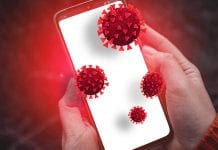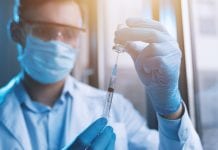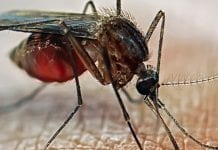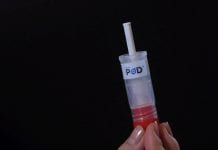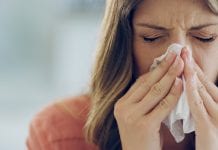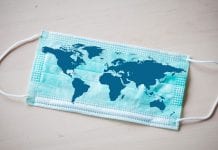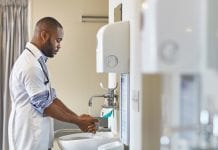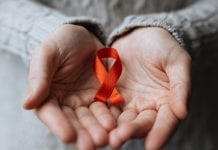Infection Control Related News
£250m funding for adult social care infection control
Adult social care in the UK is to receive an extra £250m funding to continue to protect against COVID-19 transmission.
A total of £142.5m of...
Plastic face shields do not protect from aerosols, study finds
New research has shown that surgical face masks are as effective at protecting from aerosols as respirators, but plastic face shields offer little or...
Phone screens can be used to accurately detect COVID-19
Taking a sample from mobile phone screens is as accurate at testing for COVID-19 as antigen lateral flow tests, new research suggests.
The new screening...
Certified, high-quality PPE for healthcare professionals
ASAP Innovations represents the healthcare PPE provider of choice – credible, reliable, and most importantly, certified.
ASAP Innovations is a leading manufacturer of medical PPE...
UVC disinfection in indoor spaces
Dr Dorit Aviv of the University of Pennsylvania and Dr Jovan Pantelic of KU Leuven tell HEQ about optimising space design to incorporate UVC...
Holiday essentials to keep you safe
Zidac’s team of experts recommend four key items to take with you to stay safe on your summer holiday.
With summer holidays quickly approaching, many...
Infection control efforts could be hindered by asymptomatic malaria
People infected with malaria who do not exhibit symptoms pose a hidden risk to infection control efforts, new research has shown.
Researchers from the Infectious...
Collecting saliva in a tube to test for COVID-19
The Norwegian municipality of Trondheim will be the first in the country to test for coronavirus by collecting saliva in a tube.
Trondheim in Norway...
Dry surface biofilms: a new layer of defence for superbugs
Emerging research shows traditional disinfectants may not be able to wipe out antibiotic-resistant organisms.
On any given day, one in 18 patients in a European...
50% increase in COVID-19 infections since May, REACT-1 report confirms
The latest REACT-1 report looking into COVID-19 infections in England has shown a 50% increase since the last study in May of this year,...
Common cold can help combat COVID-19 infection
Exposure to the rhinovirus, the most frequent cause of the common cold, can protect from the virus which causes COVID-19, research has found.
A new...
The future of UVC disinfection
University of Siena Associate Professor of Public Health Gabriele Messina speaks with HEQ about innovation in UVC disinfection technology.
The past year has seen an...
Can we make sure that COVID-19 is the last pandemic?
The Honourable Mark Dybul MD speaks to us about the findings of the Independent Panel for Pandemic Preparedness and Response.
The Independent Panel for Pandemic...
Testing for COVID-19 with saliva
Detecting COVID-19 could be improved with the addition of a simple processing step for saliva samples, which would eliminate the challenges of nasopharyngeal testing...
Ensuring automated hand hygiene compliance monitoring
Dr Allison Bartlett, of the University of Chicago, discusses the importance of hand hygiene compliance in clinical settings.
In an April 2021 article for the...
How homelessness poses a barrier to infection prevention
Drs Martha Montgomery and Monique Carry of the CDC discuss hand hygiene accessibility for people experiencing homelessness.
Particularly in the early stages of the COVID-19...
HIV transmission in England could be eliminated by 2030
The number of new HIV infections has fallen significantly in England and the country is on track to achieve elimination of transmission by 2030,...
Warmer temperatures lower COVID-19 transmission
Warmer conditions lower the spread of COVID-19 but are not enough alone to prevent transmission, scientists have demonstrated.
Researchers at Imperial College London conducted a...
New insights highlight importance of antiviral materials in infection control
A new review has been developed to enhance understanding and inform decisions on the use of antiviral materials and coatings to support infection control.
The...
Gene could offer protection from severe COVID-19
A new genetic discovery could explain why certain people do not exhibit symptoms of COVID-19, despite being infected with the virus.
A team of scientific...



